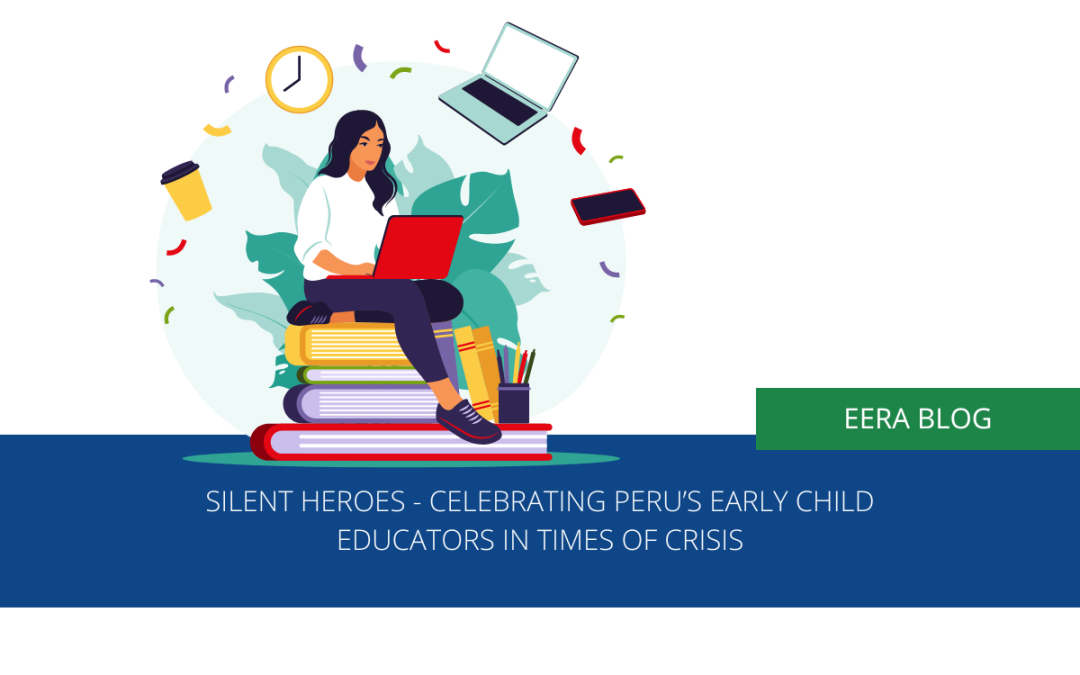We are counsellors, we are nurses, we are legal helpers, even parish priests, we are multifaceted.
These are the words of a Peruvian public-school early childhood educator/leader, as she described how her role morphed into one of holistic accompaniment, not just to her young students, but to their families as well during the extended period of school closures caused by the COVID-19 pandemic. They highlight one of the many challenges thrust upon a previously maligned and disenfranchised workforce in a moment of crisis, but much more than this, they offer us a glimpse into the lives of early childhood education(ECE) stakeholders in Peru during this period.
The Peruvian Context
Life in Peru was severely impacted by the COVID-19 pandemic and the subsequent social distancing requirements, which meant that education institutions were closed to in-person teaching for more than 18 months. Educational outcomes, whilst seeing an upward trend in the years leading up to the pandemic in terms of PISA scores, were still below the OECD average (OECD, 2018). The system was still considered to be struggling in terms of providing equal access to quality teaching and learning experiences as ‘poor, rural, indigenous girls are 91% more likely to be left behind in quality education than their wealthier, urban, non-indigenous peers’ (Alcázar et al., 2020, p12).
Public school teachers are historically perceived as having low prestige and relatively low pay in comparison to other professions (Saavedra & Gutierrez,2020), a significant contextual consideration when we ponder the critical role they not only played in ensuring educational opportunities for children, but also in support and guidance for families.
The challenges faced by early childhood educators
Within this complex context, initial findings from my multiple case study doctorate research project, where semi-structured interviews were conducted with parents, leaders and teachers at four early childhood settings, suggest that early childhood educators across private, public, rural, and urban areas faced several significant challenges. These included increased workload burdens, adaptation to the use of technology, their own emotional well-being, connecting in meaningful ways with children, and dealing with the day-to-day uncertainty. And from the outset of the strict social distancing measures put in place, they were bombarded with the demands of work.
If, for example, they did not have their child’s next call scheduled, or they didn’t know the questions to ask them, or they had a problem sending their evidence, there would be messages at midnight or at one in the morning… even at four in the morning, the phone rang. It didn’t matter if it was Friday, Saturday, or Sunday, the same.
If educators were able to connect virtually with children, they were faced with the challenges of adapting their pedagogical approach to foster relationships and engage young children through screens. A task that was initially faced by just the educators working in the private sector but soon by many in the public sector too.
It has been a very difficult time. For me, as a professional, no? Because in spite of having made every effort to bond with my students, it’s a dehumanising process, you are in front of a computer and have no contact with them.
Implications and conclusions
This blog post, rather than endlessly listing the challenging circumstances faced by early childhood educators in Peru during the pandemic, seeks to draw attention to their resilience and achievements, providing a voice to those often overlooked in vulnerable communities.
Resilience in educators was evident in the mere fact that ECE was able to be adapted and continued regardless of the extreme and unprecedented challenges faced. However, as Gu (2014) states, resilience in educators is not merely coping in the face of adversity; it encompasses a moral and vocational-like commitment to make a difference and support learning. Critical to this dedication was their ability to develop positive interactions with parents and foster supportive relationships with peers, as they shared online teaching practices and provided emotional accompaniment. These coping strategies are underpinned by collaboration, which was key in bringing the ECE community together, and ensuring the best outcomes for children.
This has significant implications for the future as the relationships forged between parents and teachers, alongside the new professional and personal skills developed by teachers, can be vital in addressing learning gaps and bridging inequalities. In highlighting these issues, there is the potential for the profession’s low prestige in Peruvian society to be changed or at least challenged.
Key Messages
- Celebrating the efforts and dedication of early childhood educators during the pandemic provides a voice to those often overlooked in vulnerable communities
- Resilience in educators includes a moral and vocational-like commitment to make a difference and support learning
- The development of positive interactions with parents was critical, as was the fostering of supportive relationships with peers
- The relationships forged, and the professional and personal skills developed by teachers during the pandemic, can be vital in addressing learing gaps and bridging inequalities.

Tom Chalmers
PhD Student at the University of Greenwich, UK
Tom Chambers is an early career researcher studying a part-time PhD at the University of Greenwich, London. His research is focused on exploring the impact of the pandemic on the key stakeholders associated with early childhood education (ECE) in Peru. The research will not only have implications for educational policy and practice but also highlight the inequalities in accessing high-quality ECE in countries in the Global South.
He has recently completed a two-year period of part-time volunteer work as a desk researcher with La Fundación Baltazar y Nicolás, a Peruvian NGO involved with supporting parents of young children in Peru. Tom is an experienced early years/primary educator and holds a Master’s in Education also from the University of Greenwich
Other blog posts on similar topics:
Alcázar, L., Bullard, M., &Balarin, M. (2020). Poor education and precarious jobs in Peru: Understanding who is left behind and why. Southern Voice, 64. https://southernvoice.org/wp-content/uploads/2020/08/Education-Jobs-Peru-Alcazar-Bullard-and-Ballarin-2020.pdf
Gu, Q. (2014). The role of relational resilience in teachers career-long commitment and effectiveness. Teachers and Teaching: Theory and Practice, 20(5), 502–529. https://doi.org/10.1080/13540602.2014.937961
OECD. (2018). Programme For International Student Assessment (PISA) Results From PISA 2018. In OECD COUNTRY NOTE. https://www.oecd.org/pisa/publications/PISA2018_CN_PER.pdf
Saavedra, J., & Gutierrez, M. (2020). Peru: A Wholesale Reform Fueled by an Obsession with Learning and Equity. In F. M. Reimers (Ed.), Audacious Education Purposes: How Governments Transform the Goals of Education Systems. Springer.
Peru: A Wholesale Reform Fueled by an Obsession with Learning and Equity | SpringerLink

